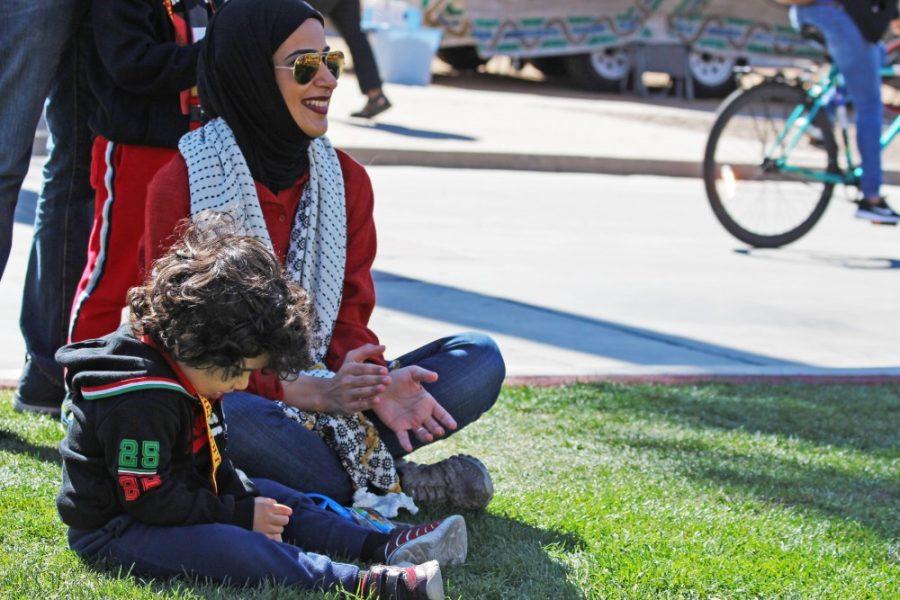The University of Arizona is made up of many different cultures, represented in its international students. Students from other countries not only have to learn a new language, they must also adjust to a whole new culture. One department where different languages and practices can be seen regularly is the Center for English as a Second Language.
Sometimes learning English as a second language can be difficult, and at times it can be deterring.
Jeremy Lee, at the CESL, said there are multiple factors that make learning a second language a challenge.
RELATED: UA professors combat the effects of monolingualism, promote cultural, linguistic diversity in Tucson
“I think the barriers to learning any other language are numerous,” he said. “For some people, there is an expectation that they will learn at a certain pace which may be at odds with their present reality.”
People who are learning a new language sometimes have their confidence shaken at some point in the process.
“Some people are made to feel embarrassed or ashamed of their accents, and some accents seem to have more cachet in our culture than others,” said Lee. “Shyness and lack of self-confidence are barriers to communication for many students as well.”
Lee said the center has many goals, with a focus on three main aspects:
“To offer excellent English language instruction to speakers of other languages, to provide professional development opportunities for the UA community and people around the world and to offer student support, promote intercultural competence and foster internationalization efforts on and off campus,” he said.
The CESL offers several different evening English classes, resources for international students on campus and fun activities.
On Feb.15, the CESL held their Annual International Festival to highlight diversity on campus.

The festival started off with a few tents on the UA Mall and quickly became a larger attraction as students marveled at the different cultures present at the UA. From 10 a.m. to noon, the tents highlighted different countries, allowing students and visitors the opportunity to learn about different cultures, from China to Saudi Arabia. Within each tent were a few games, delicious treats and lots of positive interactions between people of all backgrounds.
One of the countries represented at the event was Saudi Arabia. In many of the Saudi Arabian tents, students provided guests dates and coffee, a snack or desert commonly eaten in the country. There were also handmade woven baskets that could be used for handling bread.
Mohammad Aleidan, A UA student from Saudi Arabia, said English isn’t the hardest language.
“I learned most of my English in Saudi,” he said. “But physically being in an English-speaking country improves my English even more.”
UA student Qi Shen is from China said there are times that the language barriers can be hard.
RELATED: Tucson community celebrates Japanese culture
“With classes filled with so many people it’s hard to understand,” she said. “Sometimes when I speak, people laugh and I don’t know why. I think learning English is very important for jobs and my education.”
The festival also featured live performances next to the USS Arizona Mall Memorial. A group of about 20 Saudi Arabian men sang the Saudi Arabian national anthem with their hands to their hearts. Afterward, they broke off into a traditional dance.

The festival came to an end, but the celebration of cultures and diversity at the UA doesn’t stop. UA students of all different backgrounds can be seen around campus enjoying pieces of their own culture and parts of their new UA culture.
The CESL institution has an array of intelligent bilingual speakers who dedicate their time to learning more about American culture and language. While these students learn English at the University of Arizona, it also gives every Wildcat the opportunity to meet these incoming students with new cultural stories to learn about.
Lee said that the best advice for students learning English as a second language is to “see themselves as a user of the language.”
“Even if this means limited conversations or comprehension initially,” he said. “I think it’s of paramount importance to see and believe that they are a real user of that language.”
Some of the most influential words around the CESL establishment are from the former director and now current associate vice president of the Office of Global Initiatives, Dr. Suzanne Panferov who says, “You don’t learn how to swim by reading a book—you need to get in the water and practice swimming.”
Follow Savanah Modesitt on Twitter.









